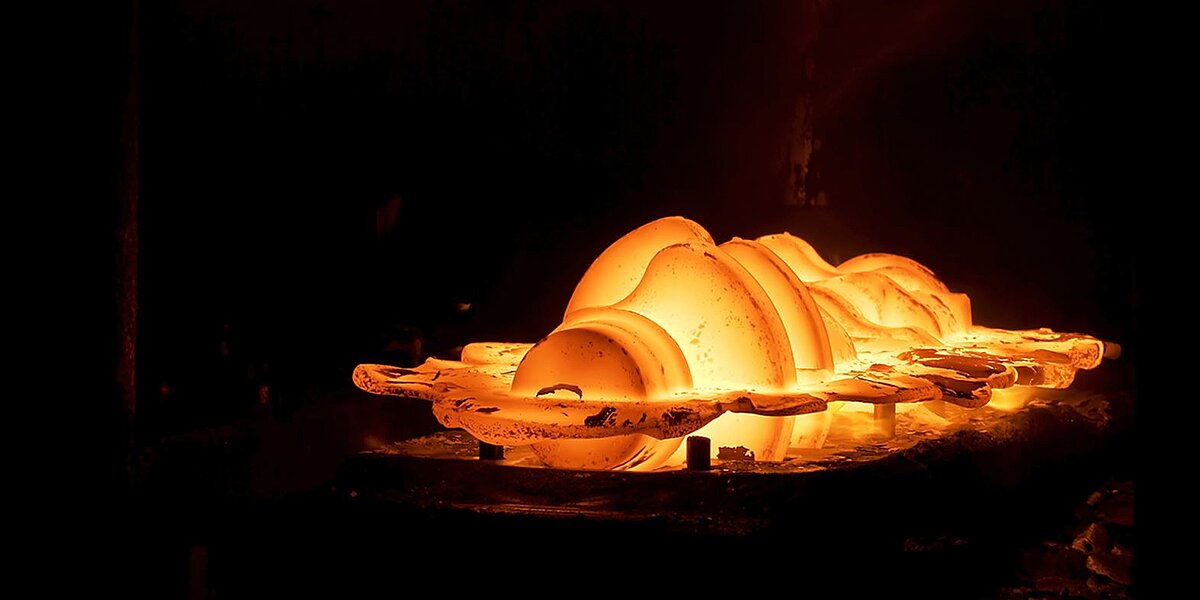Managing raw power sensibly

Solid forming is a metal processing technique that enables the production of high-strength and dense components. The plastic deformation of metals creates complex shapes such as crankshafts, which are used in numerous industries.
The most important forging processes include forging, drop forging, rolling, extrusion, extrusion molding, die bending and deep drawing. The metal can be cold or hot formed. For thin components, such as the sheet metal of a mudguard, forming tends to take place cold; for solid components, such as a crankshaft, the semi-finished products are inserted into the tool while still red-hot. Increasingly, however, the advantages of hot forming are also being used for sheet metal components, which makes the process more complex.
The simulation should show in advance where wrinkles and cracks can occur in the material. The wall thickness distribution after deep drawing can also be taken from the simulation.
However, the simulation also has its pitfalls, especially with large degrees of deformation. The elements of the initial mesh are deformed to such an extent during forming that the calculations stop. Special algorithms are required to ensure that so-called remeshing takes place during the forming simulation so that the finite elements do not degenerate.
Forming simulations are part of the core competence of many Merkle CAE Solutions customers, which is why this area is currently less in demand as a service. However, the more complex the forming processes become, the more proven technologies reach their limits.
In order to better serve this new niche market, we have entered into a cooperation with prosimalys GmbH in Bad Wörishofen, which offers and uses special software for this area: QForm UK
This complements the existing Merkle CAE Solutions tools with non-linear calculation of even very large plastic deformations, and has fully automated, adaptive remeshing in the case of large mesh distortion. Automatic and stable contact finding algorithms between one or more workpieces and the tools, and the explicit approach lead to short calculation times.
With Dr.-Ing. H.-W. Raedt, Merkle CAE Solutions has a proven expert in forging at its disposal who can provide expert support in corresponding projects.
Dr. Raedt studied metallurgy in Aachen and completed his doctorate in the field of "Forming and Forging Technology" before spending 18 years at a major automotive supplier, where he was responsible for all types of forming topics in simulation. He therefore knows the subject from simulation and practice like the back of his hand.
Are there any issues that give you a headache when forming your components? Do you see a need for optimization where simulation can help you? We would love to hear from you!
We look forward to discussing your forming technology issues with you and supporting you with advanced solutions at Merkle CAE Solutions.
Yours, Stefan Merkle
